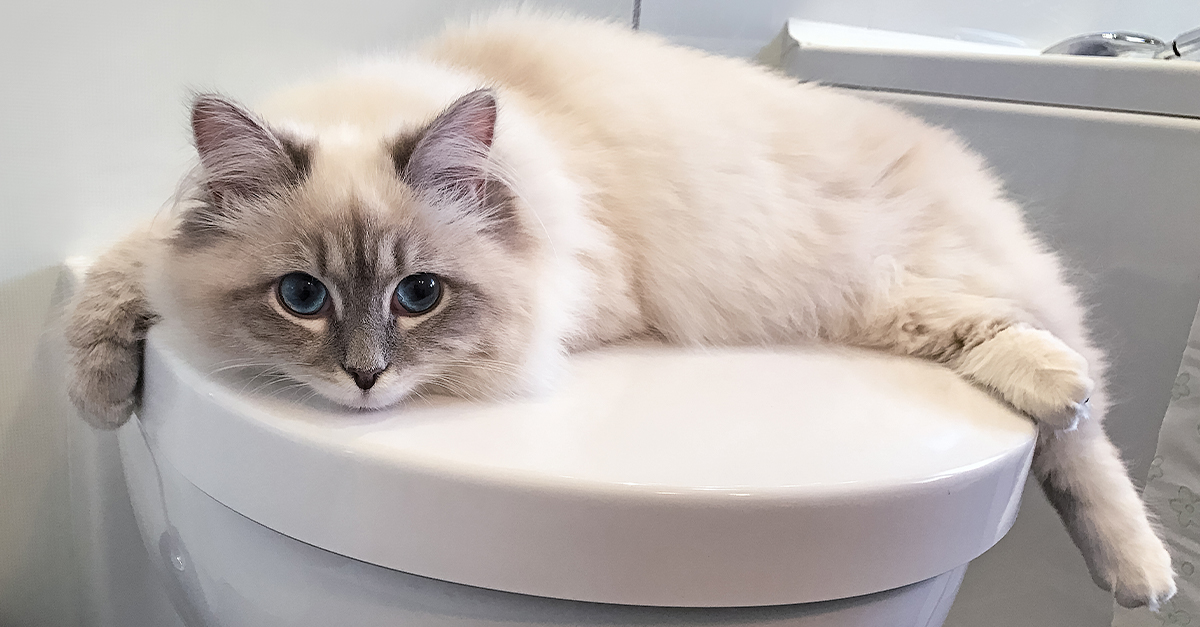Why You Should Avoid Flush Cat Poop Down Your Toilet - Crucial Information
Why You Should Avoid Flush Cat Poop Down Your Toilet - Crucial Information
Blog Article
What are your ideas about How to Dispose of Cat Poop and Litter Without Plastic Bags?

Introduction
As pet cat owners, it's vital to be mindful of just how we get rid of our feline friends' waste. While it might seem practical to flush pet cat poop down the toilet, this technique can have detrimental repercussions for both the environment and human health and wellness.
Environmental Impact
Flushing pet cat poop introduces dangerous pathogens and bloodsuckers into the water system, posing a substantial risk to water ecological communities. These pollutants can adversely influence marine life and compromise water high quality.
Wellness Risks
In addition to environmental worries, purging cat waste can additionally pose health and wellness threats to humans. Feline feces might consist of Toxoplasma gondii, a bloodsucker that can create toxoplasmosis-- a potentially serious ailment, particularly for expectant females and individuals with weakened body immune systems.
Alternatives to Flushing
Fortunately, there are more secure and more responsible methods to take care of cat poop. Consider the complying with choices:
1. Scoop and Dispose in Trash
One of the most common technique of taking care of pet cat poop is to scoop it right into a biodegradable bag and throw it in the trash. Make sure to make use of a committed clutter inside story and deal with the waste quickly.
2. Use Biodegradable Litter
Select biodegradable cat litter made from materials such as corn or wheat. These litters are environmentally friendly and can be securely disposed of in the trash.
3. Bury in the Yard
If you have a yard, consider burying cat waste in a marked location far from veggie yards and water resources. Make sure to dig deep sufficient to avoid contamination of groundwater.
4. Set Up a Pet Waste Disposal System
Purchase an animal waste disposal system especially created for feline waste. These systems utilize enzymes to break down the waste, decreasing odor and environmental influence.
Verdict
Liable pet dog possession expands past providing food and shelter-- it additionally entails correct waste monitoring. By refraining from flushing cat poop down the toilet and selecting alternate disposal techniques, we can decrease our ecological footprint and protect human health.
Why You Should Never Flush Cat Poop Down the Toilet
A rose by any other name might smell as sweet, but not all poop is created equal. Toilets, and our sewage systems, are designed for human excrement, not animal waste. It might seem like it couldn’t hurt to toss cat feces into the loo, but it’s not a good idea to flush cat poop in the toilet.
First and foremost, assuming your cat uses a litter box, any waste is going to have litter on it. And even the smallest amount of litter can wreak havoc on plumbing.
Over time, small amounts build up, filling up your septic system. Most litter sold today is clumping; it is made from a type of clay that hardens when it gets wet. Ever tried to scrape old clumps from the bottom of a litter box? You know just how cement-hard it can get!
Now imagine just a small clump of that stuck in your pipes. A simple de-clogger like Drano isn’t going to cut it. And that means it’s going to cost you big time to fix it.
Parasitic Contamination
Believe it or not, your healthy kitty may be harboring a nasty parasite. Only cats excrete Toxoplasma in their feces. Yet it rarely causes serious health issues in the cats that are infected. Most people will be fine too if infected. Only pregnant women and people with compromised immune systems are at risk. (If you’ve ever heard how women who are expecting are excused from litter cleaning duty, Toxoplasma is why.)
But other animals may have a problem if infected with the parasite. And human water treatment systems aren’t designed to handle it. As a result, the systems don’t remove the parasite before discharging wastewater into local waterways. Fish, shellfish, and other marine life — otters in particular — are susceptible to toxoplasma. If exposed, most will end up with brain damage and many will die.
Depending on the species of fish, they may end up on someone’s fish hook and, ultimately on someone’s dinner plate. If that someone has a chronic illness, they’re at risk.
Skip the Toilet Training
We know there are folks out there who like to toilet train their cats. And we give them props, it takes a lot of work. But thanks to the toxoplasma, it’s not a good idea.

I came across that piece about How to Dispose of Cat Poop and Litter Without Plastic Bags when browsing on the internet. Those who enjoyed our blog posting plz don't forget to share it. Thanks for your time invested reading it.
Click Here Report this page